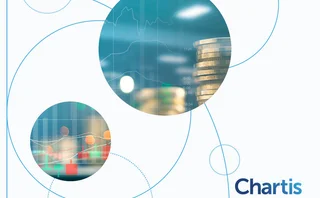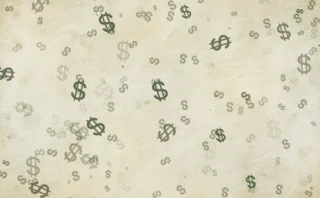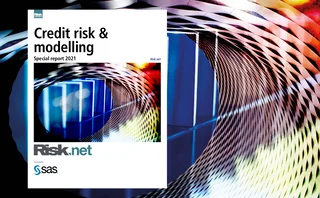
SG losses likely to affect structured products business

The EUR4.9 billion loss at Société Générale (SG), blamed by the bank on a single rogue trader, has drawn attention to counterparty credit risk within the structured products industry. In particular, distributors claim a downgrade of SG by Moody's Investors Service and Fitch Ratings, and the reputational damage incurred by the firm, could have a knock-on effect on its structured products business.
The losses were revealed on January 24 and were quickly followed by rating actions from Fitch and Moody's, which downgraded SG from AA to AA- and Aa1 to Aa2, respectively. Standard & Poor's, meanwhile, placed the bank's AA rating on credit watch with negative implications.
A downgrade would, all things being equal, make it more expensive for a company to raise funds in the wholesale market, potentially making it more difficult for a bank to source cheap short-term funding - a sometimes important facet of the structured products business (Risk December 2007, pages 34-36). However, rival dealers point out SG has a sizeable retail deposit base on which to draw, meaning the downgrade is unlikely to hurt the bank from a cost-of-funding perspective.
"I don't think SG's structured products business will be very hurt by these downgrades," says a head of structuring at a rival bank. "In terms of the costs of funding structured products, downgrades do not have a significant impact, as the bank is getting funding from many sources including retail deposits, and in some respects the business might even be helped as new structured products will be cheaper."
A downgrade means a higher discount rate would be used to price any zero-coupon bond issued by the arranging bank, meaning less of the investor's cash would be needed to buy the bond, leaving more for the option component. However, there would probably be a negative mark-to-market impact on existing structured products arranged by SG.
"Zero-coupon bonds are going to decrease in value and the mark-to-market of the product will be affected negatively, which will be a problem for traders in the secondary market," says Benoit Barthelet, who manages a fund of hedge funds and trades structured products at asset manager Lazard Freres Gestion in Paris.
More important is the issue of counterparty credit risk. Following the US subprime mortgage crisis, the perceived financial strength of a bank has become increasingly important. Hefty write-downs by investment banks in the US and Europe have caused some private banks and retail distributors to question the assumption that dealers will always be there to provide secondary market prices for products they sell. "An issuer with high funding costs may show terms that at first glance seem attractive. However, clients are increasingly aware of the fact that a guarantee is only worth as much as the institution that guarantees it. The right product for a client is a balance between the credit quality of the issuer and the proposed product terms." says Friso Postma, vice-president, third-party distribution, Benelux, at ABN Amro in Amsterdam.
As such, at least one private bank has decided to no longer deal with arrangers rated below AA. Others say distributors will be more cautious. "In the case of equity-type products, a lower rating can make the product look more attractive to investors, but for fixed-income and credit investors, rating stability and a good reputation tend to be more important," adds Postma.
The reputational damage caused by the loss, combined with the downgrades, could cause distributors to think twice about selling a product labelled with SG's brand, at least in the short term, say some. "The problem of trust is more important than the rating. If you think that a bank is not able to control the amount of risk its traders are taking, that's more concerning than the rating this bank has been given by the agencies," says one distributor.
That may also be the case for dealers. SG was a major market-maker in the equity derivatives market, and while rival banks say it is too early to draw conclusions, the downgrade may cause some to be more wary when dealing with SG.
"The downgrade is going to draw more scrutiny. People will be more cautious about doing business with them," says the head of structuring at the rival bank.
So far, SG claims there has been little effect on its client business, both in terms of new business and redemptions. "We were afraid of people asking for redemption or selling their structured products, but we received at least 200 messages (on January 24) from clients saying 'don't worry, we will continue to deal with you'," says Christophe Mianne, head of global equities and derivatives at Société Générale Corporate and Investment Banking.
Some distributors, too, tell Risk they will not be put off by recent events and will continue to distribute SG-branded products. "I'm not concerned about distributing SG's products to my clients, so long as I explain to them the risks involved, which personally I think are rather low," says one. "Its reputation will be damaged for the next few months, but it will disappear with time, as people tend to forget rather quickly."
Wietske Blees and Mark Pengelly
See also:
Only users who have a paid subscription or are part of a corporate subscription are able to print or copy content.
To access these options, along with all other subscription benefits, please contact info@risk.net or view our subscription options here: http://subscriptions.risk.net/subscribe
You are currently unable to print this content. Please contact info@risk.net to find out more.
You are currently unable to copy this content. Please contact info@risk.net to find out more.
Copyright Infopro Digital Limited. All rights reserved.
As outlined in our terms and conditions, https://www.infopro-digital.com/terms-and-conditions/subscriptions/ (point 2.4), printing is limited to a single copy.
If you would like to purchase additional rights please email info@risk.net
Copyright Infopro Digital Limited. All rights reserved.
You may share this content using our article tools. As outlined in our terms and conditions, https://www.infopro-digital.com/terms-and-conditions/subscriptions/ (clause 2.4), an Authorised User may only make one copy of the materials for their own personal use. You must also comply with the restrictions in clause 2.5.
If you would like to purchase additional rights please email info@risk.net
More on Credit risk
Credit risk management solutions 2024: market update and vendor landscape
A Chartis report outlining the view of the market and vendor landscape for credit risk management solutions in the trading and banking books
Finding the investment management ‘one analytics view’
This paper outlines the benefits accruing to buy-side practitioners on the back of generating a single analytics view of their risk and performance metrics across funds, regions and asset classes
Revolutionising liquidity management: harnessing operational intelligence for real‑time insights and risk mitigation
Pierre Gaudin, head of business development at ActiveViam, explains the importance of fast, in-memory data analysis functions in allowing firms to consistently provide senior decision-makers with actionable insights
Sec-lending haircuts and indemnification pricing
A pricing method for borrowed securities that includes haircut and indemnification is introduced
XVAs and counterparty credit risk for energy markets: addressing the challenges and unravelling complexity
In this webinar, a panel of quantitative researchers and risk practitioners from banks, energy firms and a software vendor discuss practical challenges in the modelling and risk management of XVAs and CCR in the energy markets, and how to overcome them.
Credit risk & modelling – Special report 2021
This Risk special report provides an insight on the challenges facing banks in measuring and mitigating credit risk in the current environment, and the strategies they are deploying to adapt to a more stringent regulatory approach.
The wild world of credit models
The Covid-19 pandemic has induced a kind of schizophrenia in loan-loss models. When the pandemic hit, banks overprovisioned for credit losses on the assumption that the economy would head south. But when government stimulus packages put wads of cash in…
Driving greater value in credit risk and modelling
A forum of industry leaders discusses the challenges facing banks in measuring and mitigating credit risk in the current environment, and strategies to adapt to a more stringent regulatory framework in the future







